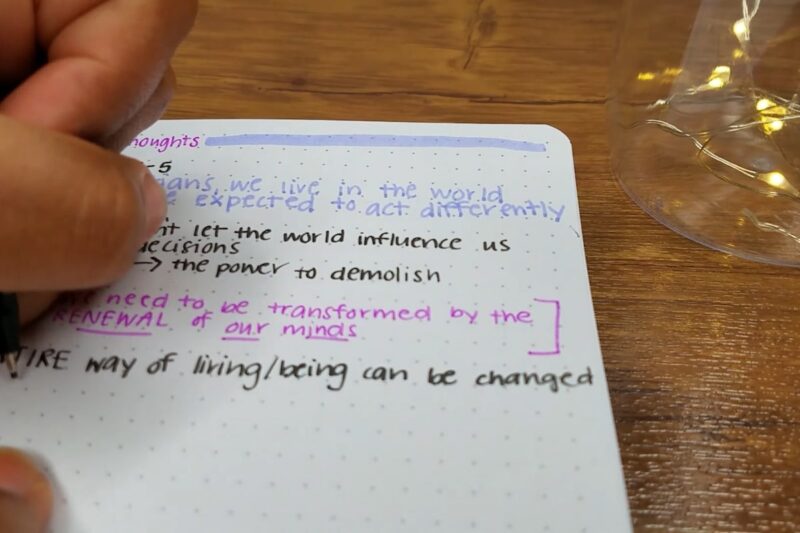In today’s fast-paced world, it’s easy to feel stressed and overwhelmed. I know I do sometimes.
There’s always so much to do, and so many things to think about, and it can be hard to find a moment of peace. But it’s important to remember that finding tranquility amidst the chaos is possible.
It’s not easy, but it’s worth it. Here are six things that help me find peace in the midst of my busy life.
Embrace Mindfulness and Meditation
Mindfulness and meditation are powerful tools for mental well-being. By being present, you anchor yourself to the current moment, distancing from past regrets and future anxieties.
Deepening your practice can involve techniques like Body Scan Meditation, which helps in grounding by paying close attention to physical sensations throughout your body. For those new to meditation, guided sessions available on various apps and online resources can be beneficial.
These sessions often combine visualization and relaxation techniques. Joining a meditation group can also provide a sense of community, making the practice more enriching.
Regular meditation and listening to certain frequencies can enhance self-awareness, helping you recognize self-defeating patterns and redirect them toward more positive outcomes. It can also improve concentration and boost emotional health.
Journal Your Thoughts
Journaling is more than just a diary entry; it’s a journey into self-awareness. Deepening your journaling practice can involve techniques like maintaining a Gratitude Journal, which shifts your focus to things you’re grateful for, or a Dream Journal to document and gain insights into your subconscious mind.
Using prompts to guide your writing can help you explore specific emotions or events in depth. The act of writing helps in organizing thoughts and making sense of emotions and experiences.
It also aids in problem-solving by allowing you to approach challenges from different angles. Over time, revisiting past entries can show how much you’ve grown and changed.
Tune into Music
Music resonates deeply with the soul. Engaging in music therapy can address physical, emotional, cognitive, and social needs.
It can involve listening, singing, or even composing music. Instead of just having music as background noise, try actively listening to it.
Dive deep into the lyrics, feel the rhythm, and let it envelop you. Documenting how certain songs make you feel or the memories they evoke can be a therapeutic exercise in itself.
Music has the power to regulate mood, reduce stress and anxiety, and even enhance cognitive performance.
Prioritize Sleep
Sleep is not just a nightly routine; it’s a pillar of mental health. The intricate relationship between sleep and mental well-being is undeniable.
A night of restless sleep can lead to mood swings, while chronic sleep deprivation can exacerbate mental health conditions like depression, anxiety, and bipolar disorder. The brain undergoes various stages during sleep, each contributing to cognitive and emotional health.
For instance, rapid eye movement (REM) sleep is vital for processing emotional information. A lack of sleep can hinder the brain’s ability to consolidate positive emotional content, affecting mood and emotional stability.
Therefore, aiming for 7-9 hours of quality sleep is not just about physical restoration but also mental rejuvenation. If sleep remains elusive, consider adopting bedtime rituals, ensuring a comfortable sleep environment, or seeking expert advice.
Engage in Physical Activity
Physical activity is not just about building muscles or stamina; it’s a gateway to mental clarity. The rhythmic pattern of a brisk walk, the adrenaline rush from a jog, or the calmness of a yoga session can act as a reset button for a cluttered mind.
Exercise releases endorphins, the body’s natural mood elevators, which can combat stress and anxiety. Beyond the immediate mood-lifting effects, regular physical activity fortifies brain health, enhancing cognitive functions and warding off mental health disorders in the long run.
Talk It Out
Communication is a powerful tool for mental decluttering. Voicing out feelings, fears, and concerns can be cathartic.
Whether it’s a heart-to-heart with a friend, a deep conversation with a family member, or a session with a therapist, talking provides an outlet for pent-up emotions. It’s not just about venting; discussing problems can lead to solutions, alternative perspectives, and a deeper understanding of one’s emotions.
For those who find it challenging to navigate the labyrinth of their thoughts, professional therapists can offer guidance, providing coping strategies and techniques to rejuvenate the mind.
FAQ
Why is it suggested to leave the phone at home during a nature walk?
Leaving your phone at home ensures that there are no distractions during the walk. This allows you to fully immerse yourself in nature and concentrate on the present moment, enhancing the stress-relieving benefits of the walk.
How does visualization aid in meditation?
Visualization helps in focusing the mind. For instance, imagining a peaceful place, like a waterfall, can help in shutting out external distractions and stressors, allowing the mind to relax and rejuvenate.
Why are non-fiction books not recommended for stress relief?
Non-fiction books often stimulate the brain with information and instructions, gearing it towards education and critical thinking. This can be counterproductive when the goal is to relax and empty the mind.
How does tidying up a room provide a positive experience?
Tidying up results in a clean and organized space, which can be visually and mentally satisfying. This positive outcome can counterbalance any negative thoughts or feelings you might be experiencing.
How does journaling aid in personal development?
Journaling not only helps in emptying the mind but is also a tool for personal development. It allows for reflection, goal setting, and tracking personal growth over time.
Why is music used as a background relaxation device in therapies?
Music has a calming effect on the mind and can help in setting a relaxing ambiance. It’s commonly used in meditation classes, massage therapies, and yoga classes to enhance the relaxation experience.
Are there any specific artists or channels recommended for soothing music?
Yes, for those looking for soothing music, channels like BLUME, ChilloutDeer, and QuietQuest on YouTube are recommended.
Final Thoughts
In today’s relentless world, unchecked stress can impair judgment and lead to significant mental health challenges, making mental clarity and self-care paramount. Techniques like nature walks, meditation, and journaling are not mere activities but vital tools to anchor and stabilize us amidst life’s tumult.
It’s essential to recognize individual coping rhythms, whether through solitary reflection or a brisk outdoor walk. While personal strategies play a crucial role, seeking external support, be it through friends or professionals, is equally vital.
Your mental well-being is about thriving, not just surviving, and you deserve every effort to ensure it.
Related Posts:
- 15 Simple Ways to Attract People - Stand Out from the Crowd
- How Many Neutrons Does Magnesium Have? Find Out How…
- Spirit Animals and Birthdays: Find Out Which One Is Yours
- 15 Ways to Change Your Mindset and Attitude -…
- The Early Signs of Mental Illness: Guardian of Your Mind
- Psychology Facts About Girls You Should Know - How…


















